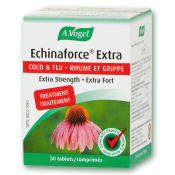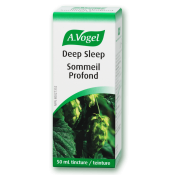Some of the most at-risk populations, including the chronically ill and elderly, are also the most prone to having a variety of immune deficiencies. They are far from the only ones in jeopardy against pathogens like members of the coronavirus family. Lots of different factors can impact our immune health and weaken it, exposing our defenses to the bacteria and viruses lurking around.
What are some of the factors that weaken immunity?
Some of these factors may not surprise you as you've heard them repeated through public health initiatives over the years. Others may cause you to pause and think on whether they have impacted your life in any way.
- Smoking. While a false comparison of e-cigarettes versus traditional cigarettes has arisen, both impact your immune health. The nicotine shuts down the formation of antibodies throughout the system, making you less able to fend off infection. It also increases the amount of cortisol, also known as the stress hormone, circulating through your body. Not to mention the damage caused to the airways from the smoke and the multiple chemicals it contains.
- Lack of sleep. Besides waking and feeling like you've auditioned for a role on The Walking Dead, a poor night's rest can make the body less effective at battling infection. The body even produces fewer natural killer cells which defend against infected cells or tumours. Certain combinations of herbs like valerian and hops, those found in Deep Sleep, have been clinically proven to improve deep sleep by up to 25% after just one dose.
- Grief. Losing a loved one can be one of the greatest stresses anyone will experience. A void is left in our lives and the impacts of bereavement can last for months to years. What researchers have come to understand in the study of grief is that beyond the psychological burden, it can hamper the immune response. It has been shown to alter sleep patterns, reduce the production of certain immune cells, and even change blood pressure and heart rate. As a result of all of these physiologic changes, bereaved patients are at a higher risk of dying from any cause, and these health risks can follow a grieving spouse for years after the loss.
- Infection. One of the mechanisms used by different pathogens is to suppress or highjack our immune system as a way of increasing the chance of survival in the human host. If the body doesn't believe it's under severe threat, then it may not destroy the infection as quickly. The suppressed immune system is why secondary infections are so common. You may catch influenza, but while your body battles that virus, it is far easier for pneumonia- and bronchitis-causing agents to infiltrate the system. Luckily, products like Echinaforce have been shown to reduce the risk of secondary infections by up to 65% when taken daily.
- Lack of movement. With an increasingly sedentary world due to long hours spent in front of screens, humankind is at a greater risk of premature death and illness. It even increases the amount of inflammation throughout the body. Imagine a busy highway with ambulances and fire trucks mixed in. The dispatcher is telling them where there are fires and injuries, but with all of the congestion, they can't get there in time. This is not much different from anti-inflammatory markers and immune cells in the body. When the body lacks adequate circulation, it fails to circulate nutrients and cells to where they're required. An easy way to determine how much movement is medicine for you, check out the Canadian Society for Exercise Physiology guidelines.
- Stress. To say this state of being impacts all aspects of life is the second biggest understatement of this article. Much like the impact of nicotine on increasing cortisol, stress also elevates this hormone and impairs immune cells. A more prominent danger comes from prolonged periods of stress like unresolved grief, a job you hate, a toxic relationship.
- Handwashing. With an increased mindfulness on hygiene and handwashing, it has led some to argue about the risk of 'too much of a good thing'. Research supports the merits of getting dirty and exposing your skin to a variety of different microbes, like those found in the dirt while gardening. The research also supports the benefits of handwashing to defend against pathogens. Much of the actual danger comes from the overuse of hand sanitizers which contain alcohol and dry out the tissues of the skin. When the tissues are dry, this can lead to cracks and openings in the tissue and make you more prone to infection.
- Loneliness. Social connections at the age of 50 can predict your health status as an elderly individual of 80. Strong relationships can actually increase the likelihood of survival against a variety of factors by almost 50%. Without these bonds with our fellow humans, the risk of illness jumps and the immune system is suppressed. Even something as simple as a hug can alter hormones which buffers stress and increases resistance against pathogens and illness.
Should I be taking an immune product?
The answer to that question depends on numerous individual factors like your nutrition status, whether you have a disease or illness, your activity and more. Immune products can support your weakened defenses, but should not be relied upon as the sole therapy. There is also a goldilocks zone between too weak of a dose, having no effect on the body, versus too much where it may stimulate already enfeebled systems.
Another factor to consider is that with the lockdown protocols implemented across much of the country, individuals may not have encountered the usual bugs. This is why rates of influenza and the common cold have plummeted, leaving scientists with fewer samples to create vaccines. With the return to workplaces and schools looming, this season may require the addition of prophylactic immune support.
What can be done to help then?
The options mentioned earlier, Echinaforce and Deep Sleep, can help support your immune system and promote a full night's rest.
In addition, as we return to a more normal routine, whether as a hybrid work from home and office model or something else, it's important to establish routine and structure. The brain enjoys reliability, so when you have a regular wake-sleep pattern and eating times, you support the regular release of hormones. This includes those that influence and support immune health and function.
Looking for more?
If you enjoyed this article, consider checking out our other articles Allergies. Are They a Sign of A Weakened Immune System? or Understanding Post-Covid Syndrome.
References
https://www.cancer.gov/cancertopics/factsheet/Risk/stress
https://csep.ca
http://journals.plos.org/plosone/article?id=10.1371/journal.pone.0116861
https://www.ncbi.nlm.nih.gov/pmc/articles/PMC3244676/
https://www.ncbi.nlm.nih.gov/pmc/articles/PMC3256323/
https://www.ncbi.nlm.nih.gov/pmc/articles/PMC3384441/
https://www.ncbi.nlm.nih.gov/pmc/articles/PMC7280687/
https://www.ncbi.nlm.nih.gov/pmc/articles/PMC7320712/
https://www.ncbi.nlm.nih.gov/pubmed/17435215/
https://www.ncbi.nlm.nih.gov/pubmed/26952830/
http://pss.sagepub.com/content/26/2/135






